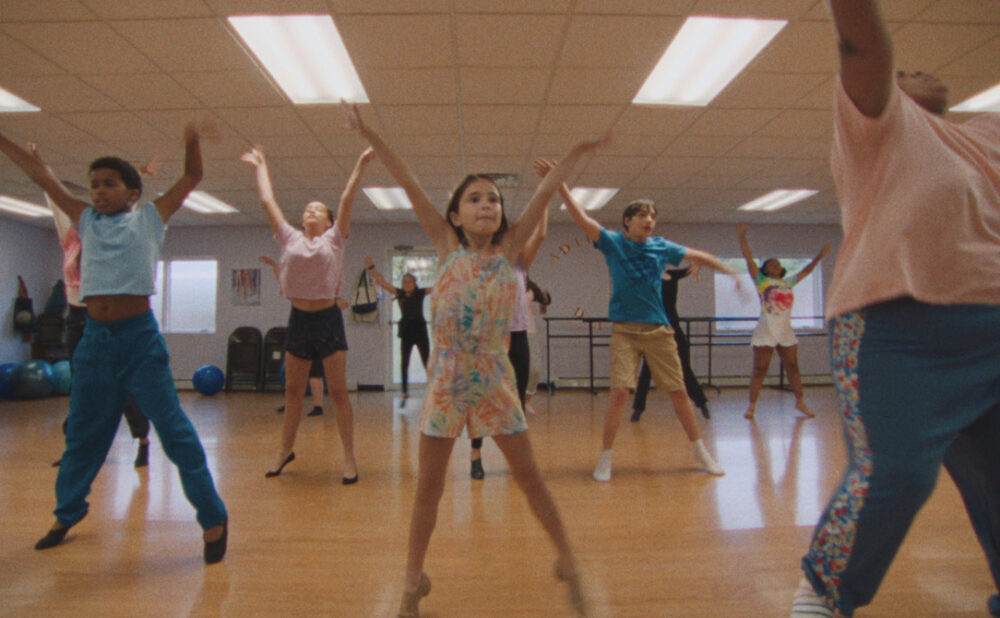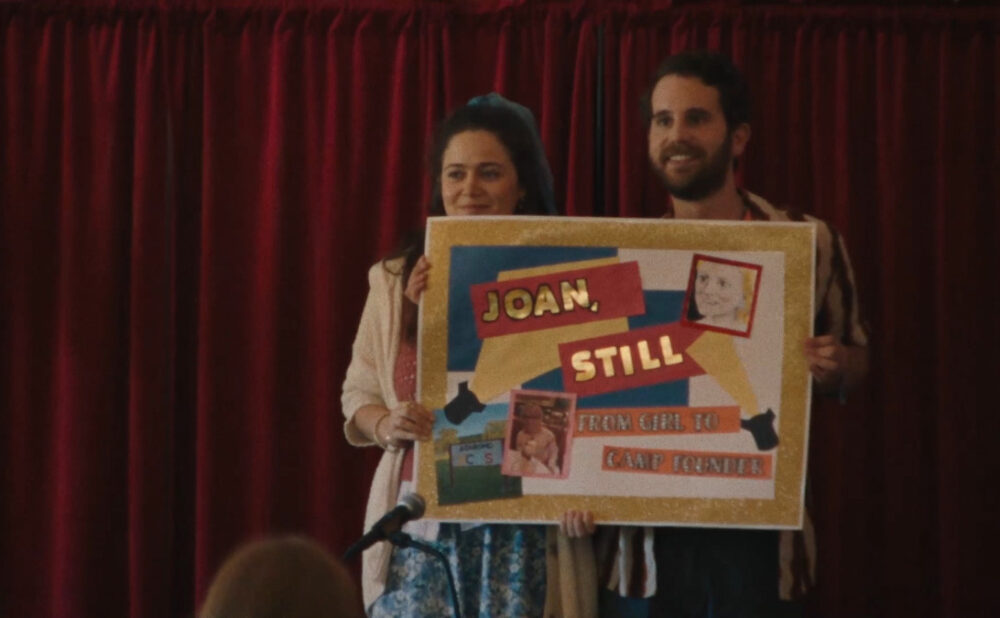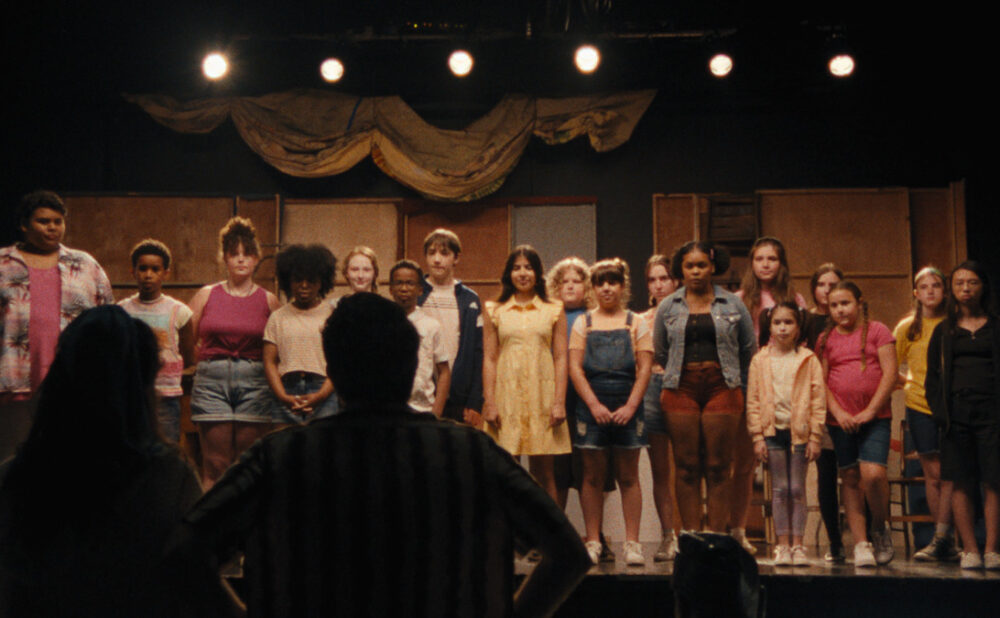‘Theater Camp’ is bound to become a sleeper hit
Mockumentary gives funny and endearing look into the lives of theatre kids of all ages
Theater Camp
Where: In theatres
What: Movie, 90 mins.
When: Fri., July 21
Genre: Comedy, mockumentary
Rating: NNNN (out of 5)
Why you should watch: The movie is funny, absurd, earnest and original, but it’s the kids who steal the show
WITH MOCKUMENTARY seemingly the default format for many filmmakers, there’s a risk of employing a tired approach in choosing a mock as your debut feature film. But Molly Gordon and Nick Lieberman’s Theater Camp proves that sometimes it’s worth the risk.
Written by Lieberman, Gordon, Noah Galvin and Ben Platt (the latter three also star), Theater Camp is one part Waiting for Guffman without the irony, one part The Office with more absurdity and one part love letter to the weirdos, misfits and outcasts who find their home in the theatre. Whether you were a theatre kid or not, Theater Camp is clever and funny enough to entertain most.
Told from the perspective of an unnamed (and unseen) film crew, Theater Camp starts out being about Joan Rubinsky (Amy Sedaris), the founder of AdirondACTS, a theatre camp in upstate New York. But when Joan falls into a coma, the focus shifts to her son Troy (Jimmy Tatro) and the staff and campers at AdirondACTS.
The AdirondACTS staff is a motley crew: Troy, who is filling in for his mother, spends the summer honing his “en-Troy-preneur” skills to get funding for the camp, which is in line for foreclosure — a fact he shares only with the camp’s mousy tech guy, Glenn (Galvin). Troy is a caricature of the crypto dudebro vlogger: too much confidence and not enough to back it up and is played with the right mixture of humour and with sincerity by Tatro.
His character is well juxtaposed with Glenn, who is often forgotten or hidden away doing some task. Over the course of the movie, Troy’s excessive confidence rubs off on Glenn and Troy takes a dose of Glenn’s humbleness. Unfortunately, we don’t get to see Troy truly evolve (though he does, somewhere off camera because by the end he’s a changed person) and that’s the fault of the film having so many main characters.
However, Galvin is the breakout star of this movie, as the audience at the screening very vocally announced. Glenn is talented though his talent is ignored as he runs around solving the camp’s technical and prop issues. He’s the epitome of those passionate theatre kids who love the theatre so much that they’re content to be associated with it in any way, even if it’s not the way their hearts desire. Luckily, Glenn does get to share the spotlight (in drag!) and both the movie audience as well as the real-life audience in the theatre loved him.
Former campers Amos (Platt) and Rebecca-Diane (Gordon) are best friends and teach drama and music, respectively. While the movie is called Theater Camp, it could just as easily have been called The Amos and Rebecca-Diane Show since these two seem to be the intended stars because their personal problems are the only ones that seem to matter.
At first, these two seem to have an idyllic and quirky relationship, but we soon learn that co-dependency runs deep and to the detriment of both. Amos has dedicated his life to being a “performer working as a drama teacher” and thought Rebecca-Diane was the same, but she has dreams of actually performing. Their big conflict happens when Rebecca-Diane reveals she got a job as a performer on a cruise ship; Amos, instead of being happy for his best friend, is infuriated. But then he goes off to help one of the campers he previously found annoying and somehow that makes him forgive Rebecca-Diane.
With the conflict between these two, it becomes more obvious that the movie was written by three men and just one woman because Amos is a cocky brat who bulldozes over Rebecca-Diane, and she lets him. When she finally stands up for herself, Amos is furious that he doesn’t get his way any longer. On the one hand, it’s interesting to have two main characters with no romantic interest in each other. On the other hand, do we really need more storylines about quirky white girls and selfish men with anger issues?
Clive (Nathan Lee Graham) teaches dance and Gigi (Owen Thiele) is the camp’s costume designer. To save money, Troy fires the rest of the staff and hires Janet (Ayo Edebiri, who also stars in The Bear) to replace them, unaware that Janet has lied on her resume and knows nothing about theatre.
These three are the only Black folk on the staff and they are treated as background characters; just there to fill out the cast and don’t really add anything to the plot. Disappointing, though not surprising, that the only people of colour in the main cast are treated like tokens.
Janet, in particular, would have been a great character to develop more as she’s the audience’s wake-up call to the absurdity of the lives of these theatre people. A genuine outsider with no background (or, as far as we know, interest) in theatre, Janet’s quips make you realize just how unhinged these people are. Coupled with Edebiri’s flawlessly hilarious performance, Janet’s scenes are some of the funniest in the movie. Too bad they’re few and far between.
The kids are the best part of this movie. The casting directors deserve kudos for hiring such a physically and racially diverse group of kids who play their parts with sincerity and just the right amount of humour, without being over the top. A lot of them are real-life theatre kids, and this is their first acting gig in front of a camera. These kids are passionate, unashamed and wildly entertaining — and it’s hard to tell if they’re just acting or if they’re just playing versions of their real selves. It’s unfortunate that the filmmakers didn’t take advantage of the mockumentary style to give more of an insight into the lives of these campers. Like the Black characters in the movie, the campers seem to be underdeveloped and are only really prominent when performing in the big production at the end of the movie.
Sometimes the movie feels like it is making fun of these kids and how seriously they take the theatre. Shots of the kids’ Broadway posters (as opposed to band or movie posters), their seemingly exaggerated enthusiasm about beloved camp teachers and their pooh-poohing of a fellow camper playing football makes it seem like these kids are a weird type of clique and think they’re cooler than they are.
But very quickly, it becomes clear that the movie is affectionately poking fun at all theatre kids, young and old alike. The obsession may seem humorous, but it can help achieve goals. The enthusiasm that seems misplaced is actually admiration for those who paved the way.
Written and directed by a group of performer friends, it’s no surprise that the movie aims to endear as well tease amateur theatre folk. But it also makes clear that the theatre stars who have become beloved worldwide probably started out as one of these quirky kids at some Podunk little theatre camp.
Theater Camp could be this summer’s sleeper hit with a small but loyal following for years to come. If you’re looking for something with high-class humour that tackles real issues facing real people, look elsewhere. But if you’re into absurdist satire and cheap laughs, this movie is the movie for you.








